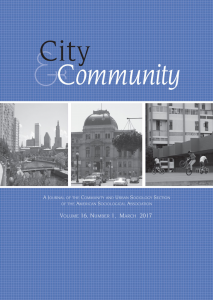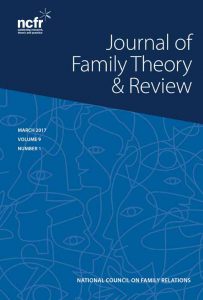the culture of efficiency
 I have a number of posts on this blog regarding the user-generated web (what has come to be known as Web 2.0), usually focused on social networking sites or the changing relations of production and consumption online, leading to the rise of prosumption and the prosumer (briefly, prosumption involves both production and consumption rather than focusing on either one or the other). Some of these ideas are published as a chapter in the new book, The Culture of Efficiency, edited by Sharon Klienman. The chapter, co-authored with George Ritzer, is titled “Efficiency, Effectiveness and Web 2.0”.
I have a number of posts on this blog regarding the user-generated web (what has come to be known as Web 2.0), usually focused on social networking sites or the changing relations of production and consumption online, leading to the rise of prosumption and the prosumer (briefly, prosumption involves both production and consumption rather than focusing on either one or the other). Some of these ideas are published as a chapter in the new book, The Culture of Efficiency, edited by Sharon Klienman. The chapter, co-authored with George Ritzer, is titled “Efficiency, Effectiveness and Web 2.0”.
There, we argue that there has been an explosion of user-generated content, creating a virtual world of general abundance. We maintain that efficiency thinking –getting the most output from a given input or using the least input to generate a given output- only makes sense to the degree that scarcity exists. Web 2.0 is, largely, an abundant system, requiring a post-scarcity focus on effectiveness rather than efficiency.
For example, it matters little the amount of input that goes into a Wikipedia entry. Many hundreds of authors putting in many hundreds of hours into an entry that is never finished is highly inefficient from the standpoint of content-production. Simultaneously, however, it can also be a highly effective way of building a base of knowledge, as the sheer size of Wikipedia illustrates.
Our essay is a small part of the larger book which looks at how people deal with new technological developments in modern, digital life –a timely and important topic. ~nathan






1540-6237/asset/SSSA_Logo-RGB.jpg?v=1&s=c337bd297fd542da89c4e342754f2e91c5d6302e)
Congratulations. Loving the little dog on the cover.
Two questions:
1) Is Wikipedia more or less efficient than paper encyclopedias? I would wager more efficient in terms of usage/labour input due to the much larger number of users. Effort is lost due to people disputing what content should be present, incrementally changing, shifting and adding content, but maybe this is part of the Wikipedia product. Of course, it would be more efficient if one person wrote each article, the article could not be edited, and he wrote exactly what would be written collaboratively but….. this is impossible for any one person to do.
2) Altering a wikipedia page would have positive expected externalities wouldn’t it? In which case we could expect a lower than efficient rate of edits…..
1-correct, that is what is being argued, that it is less efficient for many people to write one entry, but can be more effective. the effort being lost is less efficient rather than more. perhaps you are defining efficiency in some way other than i did in the post? ~nathan
Congratulations on the publication!
I am especially interested in the idea of effectiveness–but who is it effective for–prosumers, users, “content owners,” site owners, or some other entity?
Keri
I am delighted to hear that you have been published. That is awesome news!